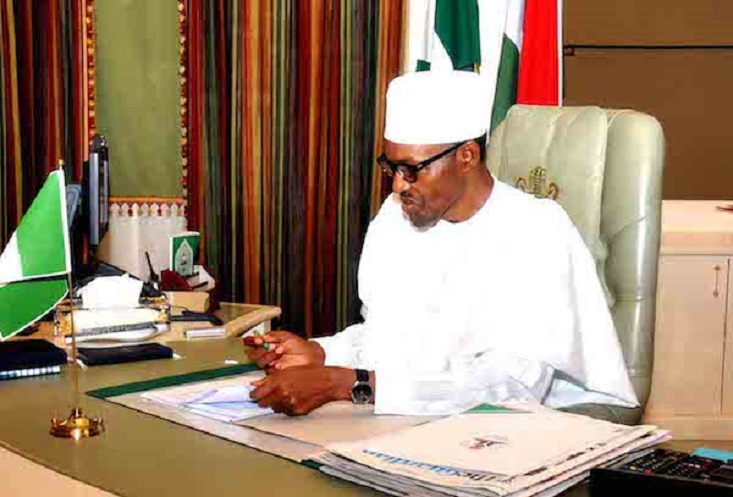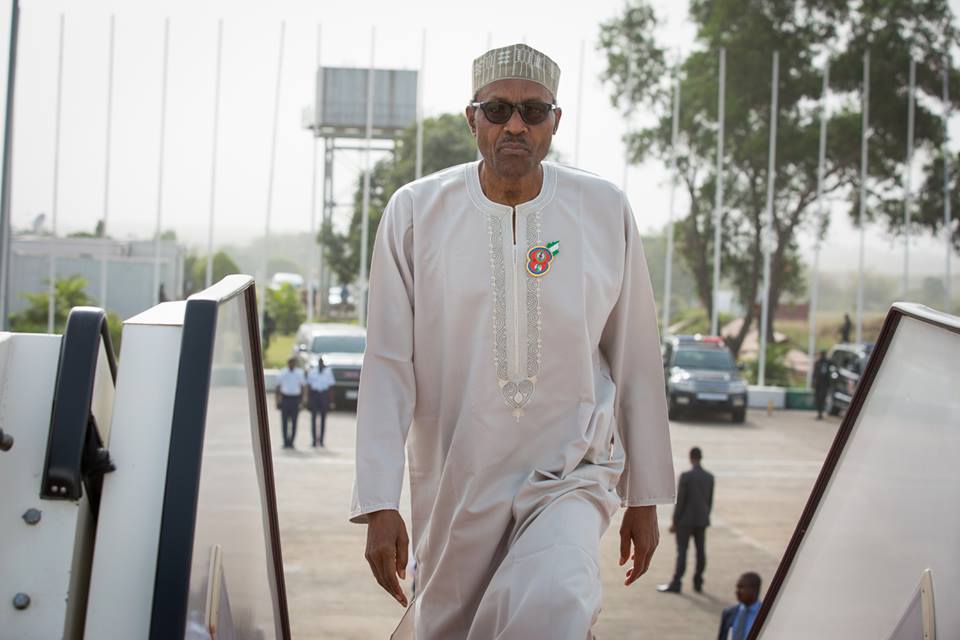The preamble
The Nigerian socio-economic and socio-political landscape has journeyed from Obasanjo’s reform agenda to Yar’Adua’s seven-point agenda. We also had a transformation agenda under Jonathan, and presently we have Buhari’s change agenda. Under the previous leaders the national budgets were tilted towards achieving the goals of their respective governments. None of them to some extent improved the larger standard of living of the people. The budget of N6.08 trillion, going by analysis, may likely suffer the fate of its predecessors if steps are not urgently taken to retool it.
The budget assumption was premised on an estimated daily crude oil sale of 2.2 million barrels at $38 per barrel, with a conservative exchange rate of N199 per dollar. Simple multiplication and addition will show that N6.08 trillion will be exercised if economic variables go as planned. PMB has focused on non-oil revenues by broadening tax base and improving the effectiveness of the revenue collecting agencies. Also, with the full implementation of the Treasury Single Account (TSA), we expect significant improvement in the collection and remittance of independent revenues. To further support the drive for increased remittances, PMB’s administration promises that all Ministries, Departments and Agencies present their budgets in advance, and remit their operating surpluses as required by Section 22 of the Fiscal Responsibility Act.
Said, Clement Ejiofor (https://www.naij.com/694368-opinion-2016-budget-enormous-soap-bubble.html)
“The budget was premised on an estimated daily crude oil sale of 2.2 million barrels at $38 per barrel with a conservative exchange rate of N199 per dollar. Simple multiplication and addition will show that N6.08 trillion will be exercised if economic variables go as planned. However, as sales do not equal profit, what the president presented to the National Assembly were oil revenue estimate of N820 billion (the federal government share of the expected oil profit), non-oil revenue of N1.45 trillion and independent revenue of N1.51 trillion. It means that using the 56%-revenue formula the federal government share accounts for N820 billion out of the N1.459-trillion total profit from the crude oil sales. The balance of N4.620 trillion represents the cost of selling 803 million barrels of crude annually. This huge cost accounting for 76% of revenue nourishes the economy of the refining country to our detriment. The pertinent question is: can the federal government sustain this budget when oil price falls below $38 per barrel, considering that we already have a deficit of N1.8 trillion?” – Analysed by one Clement Ejiofor
Today, on prices have already crashed to below $28 dollars per barrel, the worst in many years
On the economy, PMB, injected new leadership at the helm of our revenue generating agencies including the Federal Inland Revenue Service (FIRS), Nigerian National Petroleum Corporation (NNPC), Nigerian Communications Commission (NCC), and the Nigerian Customs Service (NCS). The Government is implementing the Treasury Single Account (TSA) which, so far, has provided greater visibility of Government revenues and cash flows.
Federal Government Perspective
The federal government plans to change approach towards budget planning that has been crippling Nigeria’s economy for years – To do this,
Vice president Yemi Osinbajo, announced that the federal government plans to change its approach towards budget planning. He told that “it will use a zero-based budgeting for its 2106 budget planning. This method of budgeting means that all activities, related costs and revenues are fully reviewed every time at the time of budget formulation”.
The Vice president disclosed the federal government’s plans for 2016 at the presidential villa in Abuja during a courtesy call on him by the National Economic Summit Group. Besides plans to use the zero-based budgeting model for the 2016 budget, the federal government also plans to focus on a “bottom-up approach to development” for the next four years.
Osinbajo also said that the introduction of the Treasury Savings Account for all the governing bodies was a policy to prevent the possibilities of financial leakages. Another announced initiative by the federal government is establishing an infrastructure fund planned outside the budget to make funding critical areas of the economy such as power sector and roads easier.
The vice president also asserted that the federal government will look for ways of funding capital projects from the sources outside budget. According to him, “allowing retail investors to come into the nation’s capital market will ultimately deepen the market with potentials for multiplier effects on other sectors of the economy.”
The directive from the federal government that every federal government ministry, parastatal and agencies should begin remitting its earnings into a TSA) have had spirally negative effects on the Nigerian banking industry, from where huge funds have been withdrawn. Many of the banks have been gasping for breath, holding on to life by the whiskers.
NOW THIS
Holding the ministers accountable
Immediately after the presentation of the 2016 budget, a few ministers were interviewed by Channels TV and they corroborated the claims of President Buhari. All of them assured that once the budget was passed, things will begin to turn around for good in the country.
The Minister of Budget and National Planning, Senator Udoma Udoma, said: “Given the state of the economy right now, we must revive it and the only way to revive it is to spend on infrastructure which is what we’re doing in this budget. It’s an infrastructure and is a jobs budget. We also set aside money for social intervention. As the president explained, we’re going to recruit teachers, we’re going to get loans for market women and do various projects to stimulate the economy and create jobs.”
To the Minister of Labour and Employment, Dr Chris Ngige, “What you [Nigerians] are to expect is job, job, job! We’re going to create jobs and then if you look at the budget, it’s an intervention budget for job creation. There are so many programmes that will run under them but all of them end up being for job creation.”
In alleviating the concerns of Nigerian farmers, Chief Audu Ogbeh, the Minister for Agriculture declared: “They [Nigerian farmers] should expect a key support in training, extension services, post-harvest management, in a bigger market abroad for their produce. They should expect innovations in livestock, tree crops. And the beautiful news is that the demand for Nigerian produce abroad has never been this high. That’s what makes it marvelous. And then the private sector; Nigerians are responding amazingly to the call for agriculture.”
AND THIS
Mysterious Disappearance of the National Budget
Members of the National Assembly are divided over the alleged withdrawal of the N6.08 trillion 2016 budget by President Muhammadu Buhari.
Reports recently surfaced that PMB had written to the National Assembly requesting to withdraw the budget proposal to amend some figures.
Some Senators were said to be in agreement with the alleged withdrawal, saying the president’s action was in order, while others did not.
According to Senate leader, Senator Ali Ndume, it was impossible for Buhari to have withdrawn the budget, as it is not a document that one can just withdraw, since it can be adjusted during debate.
Kabiru Gaya, chairman of the Senate Committee on Works said Buhari has a right to readjust the budget:
“I do not think it has been withdrawn but whatever the case is, the figure of the entire budget will not change. Mostly, there are adjustments of priority projects. So, if the figure under the subhead is not defined, then he has the right to readjust it and bring it back to us. The adjustment can also be done even while we are still discussing the budget.”
On his part, Senator Ita Enang, the Special Assistant to the President on National Assembly Matters (Senate), said that to the best of his knowledge the budget was still with the National Assembly and he was not aware of the budget withdrawal.
Recall that some Nigerians had kicked against the budget proposal after it was presented by Buhari. Femi Fani-Kayode had said: “The 2016 budget is fueled by insincerity, shrouded in fantasy, built on tall dreams and spawned by deceit, ignorance and the illusion of change. It is bloated, unrealistic, expensive, cosmetic and it will not result in anything good.”
If therefore the presidency intended to withdraw the budget because of public proposals, there are better parliamentary ways of doing this. To hear that a National budget has simply grown wings and disappeared is a great embarrassment to Nigeria, especially in the eyes of the international community. Question for the week: Where exactly is Nigeria’s 2016 National budget?
LAST LINE
Are you all reading and digesting this Sunday sermon on the mount of the Nigerian Project, by Chief Mike Ozekhome, SAN, OFR?








